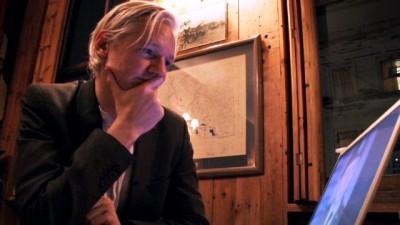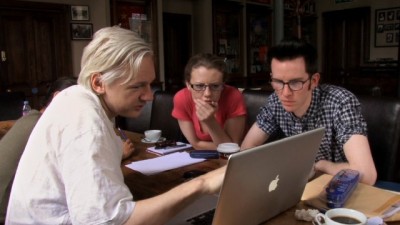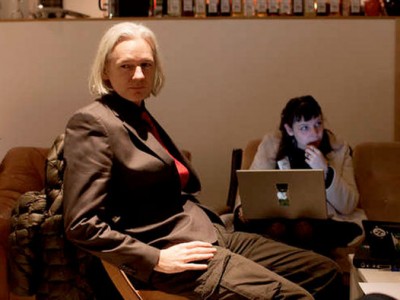
The special gift that Alex Gibney brings to the documentary film is the ability to present his facts — and suppositions — in such a way that even material you’re familiar with tends to feel fresh when put into context. Moreover, his films make sense out of the amassed information in a way that simply following the news as it happened never could. That’s certainly true of his latest, We Steal Secrets: The Story of WikiLeaks. It’s also true that at 130 minutes, the film outstays its welcome by a sizable margin. This look at WikiLeaks — and founder Julian Assange — makes its case long before the film stops talking. For purposes of shorthand, we tend to just lump documentaries into a single, simple classification. The truth is that documentaries come in a variety of types that tend to lean in one of two directions — activist or informational. We Steal Secrets might be either or both, but mostly it’s the documentary version of a “ripped-from-the-headlines” drama.

And the story clearly makes for good drama. It’s very nearly a spy yarn — only none of the players are actually spies in the 007 sense. Instead, we have an anarchist-minded hacker, Assange, who thinks he can reshape the way the world is run by releasing secret documents that would expose the way things work behind the scenes of government and business, thereby forcing transparency on both — quite against their wills, of course. What ended up happening most of us know in broad strokes, but Gibney’s film narrows its focus to the story of Bradley Manning, the U.S. Army private who bought into Assange’s vision and had access to thousands of classified documents. The story is a complex one that involves Manning’s gender-identity issues and his online friendship with Adrian Lamo, who introduced Manning to Assange’s site — and who would ultimately be the one who turned Manning in.

In the meantime, the film follows Assange’s rise from nonentity hacker to a media celebrity with a large following of fans. In the process, Assange, according to the film, comes to believe too much in his self-created image. His fears of persecution, even possible assassination, at first seem justified — especially, in light of the more blustering TV pundits — but it quickly unravels into sheer paranoia. The irony is not lost on Gibney: that a man obsessed with the transparency of others should become so secretive about his own privacy. Not surprisingly, Assange is not interviewed for the film — apparently, he demanded control and a million bucks for the privilege of one — angering the man’s more vocal supporters, who don’t seem to understand what a documentary is. (I blame reality TV.)
It doesn’t all work. As noted, it’s way too long for its own good. I understand Gibney’s desire to support his image of Assange and the other players, but in many cases, he’s simply restating that which has already been said. In some respects, however, it’s the perfect story for our age, since it deals with the impact of three men on each other’s lives — three men who have never even met. Rated R for some disturbing violent images, language and sexual material.
Playing at Carolina Cinemas




Not surprisingly, Assange is not interviewed for the film
Maybe Gibney should’ve brought in Jude Law to reprise his performance from CONTAGION?